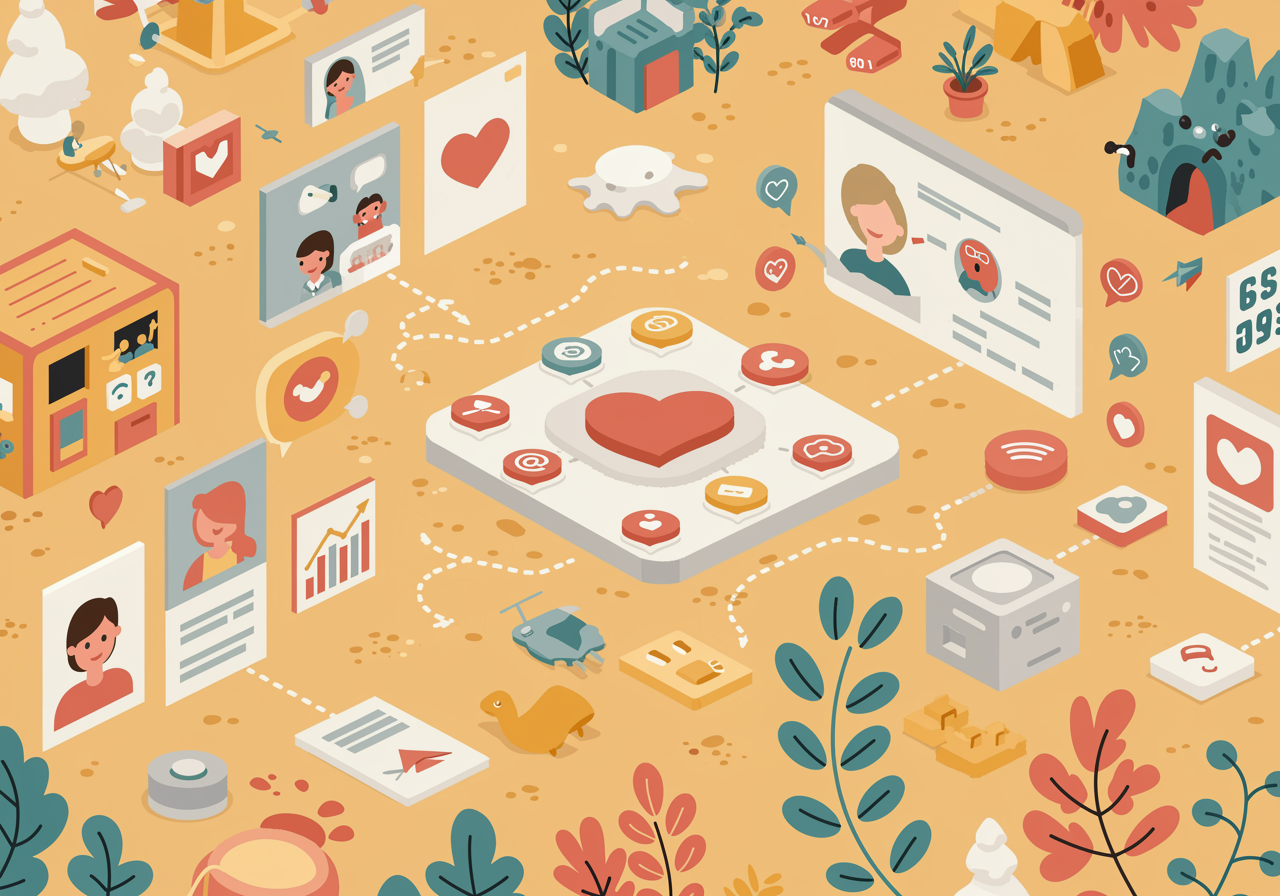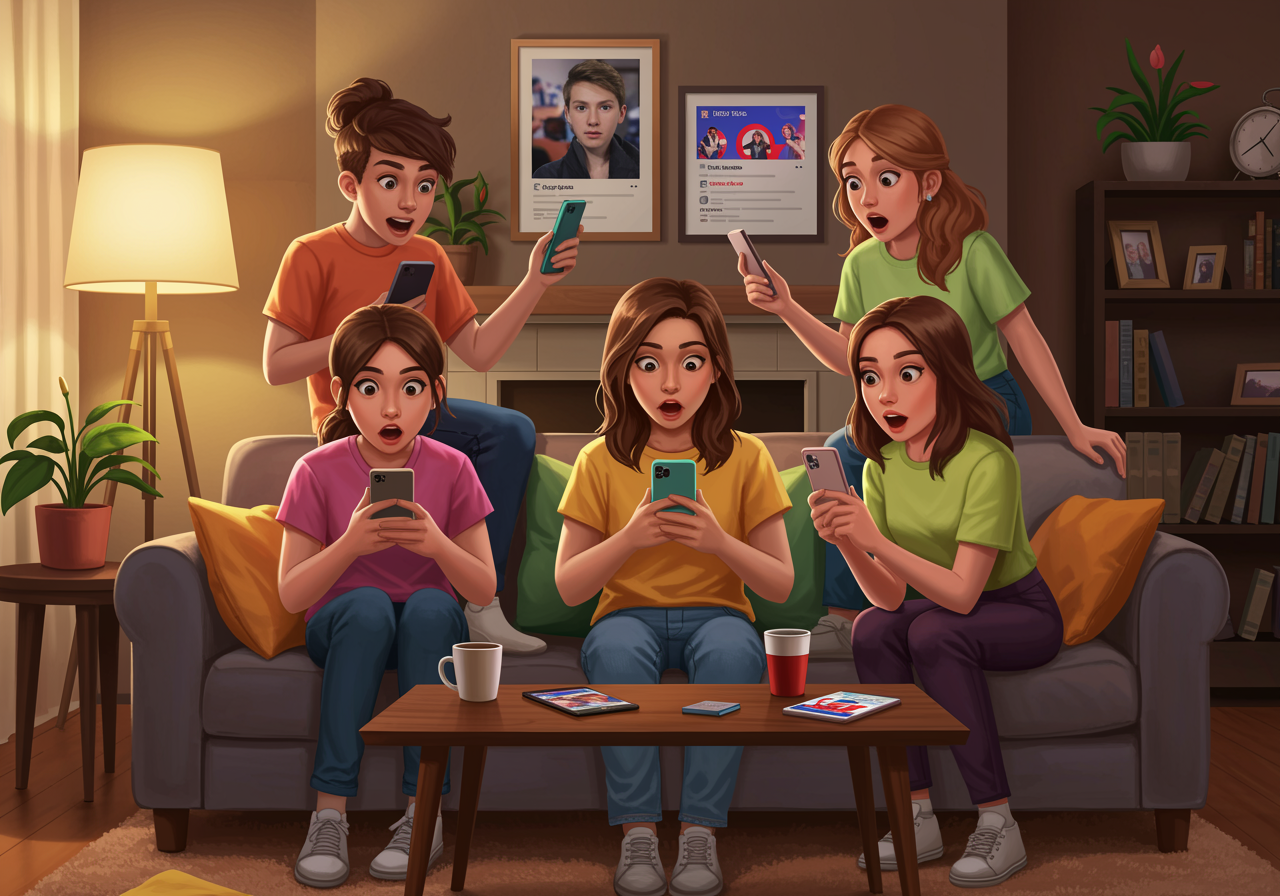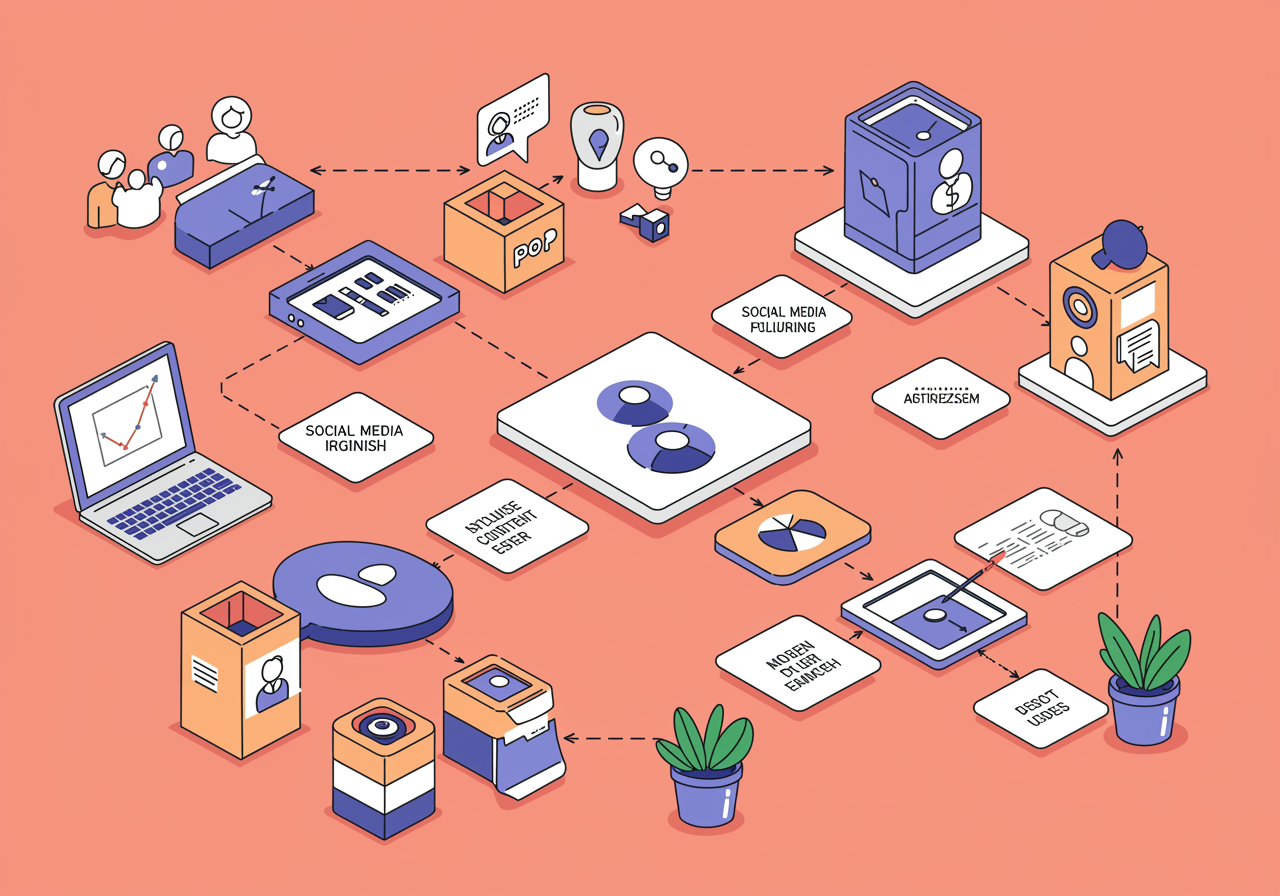The Great Opinion Machine: How Social Media Shapes What We Think About Politics

Discover how your feeds become powerful thought-shapers (and how to stay curious!)
Ever wonder why your social media feels like it’s reading your mind? Dive into the fascinating world of algorithms and discover how platforms influence what we think about the world around us.
Overview
Imagine if your favorite pizza place only showed you pepperoni ads, and you started thinking pepperoni was the only topping that existed! That's kind of what happens with social media and political ideas. These platforms use smart computer programs called algorithms to decide what posts, videos, and articles you see. Over time, this can create 'opinion bubbles' where we mainly see viewpoints that match what we already believe. Understanding how this works helps teens become smarter digital citizens who can think critically about the information they encounter online.

Understand in 30 Seconds
Get up to speed quickly
- The Algorithm Detective: Social media platforms use secret formulas (algorithms) to decide what you see based on what you've liked, shared, or watched before.
- The Echo Chamber Effect: When you mostly see posts that agree with your existing beliefs, it's like being in a room where your voice echoes back at you.
- The Engagement Game: Platforms want you to stay online longer, so they show content that gets strong reactions – even if it's angry or divisive.
- The Filter Bubble: Your social media feed becomes like a personalized bubble that filters out different perspectives, making the world seem more one-sided than it really is.
Real Life Scenario
Situations you can relate to
Think about your music streaming app. If you listen to a lot of pop music, it starts recommending more pop songs, right? Soon, your 'Discover Weekly' playlist is all pop, and you might forget that jazz, country, or rock even exist! Social media works the same way with political ideas. If you 'like' posts about environmental issues, the platform thinks, 'Aha! They love environmental content!' and shows you more. Before you know it, your feed is full of climate change articles, and you might start thinking everyone cares about the environment as much as you do. But step outside your digital bubble, and you might meet people who have completely different priorities. The tricky part? This happens so gradually that we don't even notice it's happening. Have you ever been surprised to learn that a friend or family member has totally different political views than what you see online?

Role Play
Spark a conversation with “what if” scenarios
What if you could design your own social media algorithm?
- Role play: Take turns being the 'algorithm designer' and the 'user.' The designer decides what content to show based on the user's previous likes and clicks. Notice how easy it is to create an echo chamber!
What if you swapped phones with someone who has completely different interests?
- Role play: Imagine scrolling through each other's feeds and discuss what you notice. How different are the political posts and news stories that each person sees?
What if you were a detective investigating bias in your own social media feed?
- Role play: Spend 10 minutes looking through your actual feed together. Count how many posts support different viewpoints on a current issue. What patterns do you notice?
FAQs
Frequently asked questions people want to know
Is social media trying to brainwash us?
Not exactly! Platforms mainly want to keep you scrolling so they can show ads. But the side effect is that you see more of what you already agree with, which can make your views stronger or more extreme.
How can I see different perspectives on social media?
Follow people and pages with different viewpoints, read news from various sources, and occasionally click on articles that challenge your opinions. This 'confuses' the algorithm in a good way!
Are some social media platforms worse than others for political bias?
All platforms use algorithms, but they work differently. Some prioritize recent posts, others focus on engagement, and some try to show diverse content. The key is understanding how each one works.
Examples in the Wild
See how this works day to day
- During the 2020 election, Facebook's algorithm showed different users completely different news stories about voting, even in the same geographic area. (Wall Street Journal investigation, 2021)
- TikTok users in different countries see vastly different political content, even when following similar accounts, due to localized algorithms. (Reuters digital media study, 2023)
- YouTube's recommendation system led some users down 'rabbit holes' of increasingly extreme political content during the 2016 election cycle. (Pew Research Center, 2020)
- Instagram's algorithm tends to suppress political content during election periods, affecting how young voters get information about candidates. (MIT Technology Review, 2022)
In Summary
What you should know before you start
- Social media algorithms create personalized feeds that can reinforce existing beliefs and limit exposure to different viewpoints
- Platforms prioritize engaging content, which often means showing posts that trigger strong emotional reactions
- Understanding how algorithms work helps teens become more critical consumers of digital information
- Actively seeking diverse perspectives and questioning what we see online leads to better-informed opinions
Pro-tip for Parents
You got this!
When your teen shares a political post or opinion they saw online, resist the urge to immediately correct or argue. Instead, ask curious questions like 'What made this post interesting to you?' or 'Have you seen other perspectives on this issue?' This approach keeps the conversation open and teaches critical thinking skills rather than shutting down dialogue. Remember, the goal isn't to control what they think, but to help them think more thoughtfully about what they see.

Keep an Eye Out For
Find these examples in everyday life
- Election seasons when political content increases dramatically on all platforms
- Trending hashtags or viral political videos that suddenly appear in multiple feeds
- When your teen mentions seeing 'everyone' online talking about a political issue (a potential sign of algorithm influence)
- Discussions about current events where family members have seen completely different news stories online
Explore Beyond
Look up these related research topics
- How news outlets choose which stories to cover and how this affects public opinion
- The psychology of confirmation bias and why we naturally prefer information that confirms our beliefs
- How political advertising on social media targets specific groups of people
- The role of fact-checking and how to identify reliable sources online